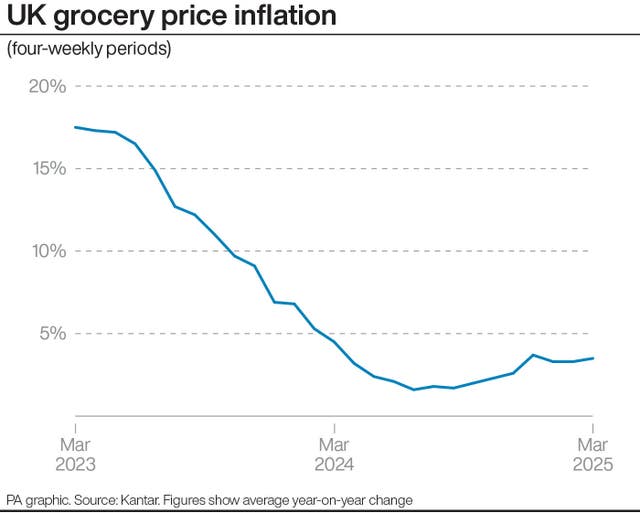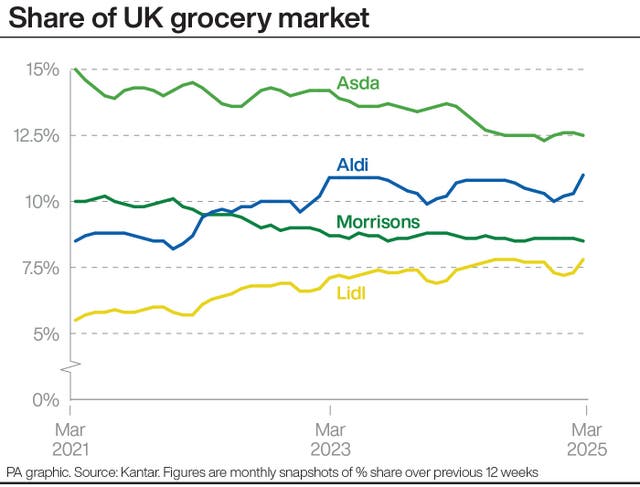Grocery price inflation edges up as food cost concerns rise among consumers
Supermarket prices are now 3.5% higher than a year ago, up from 3.3% in February, according to analysts Kantar.

Grocery price inflation has edged up as the rising cost of food ranks just behind energy bills on the list of consumers’ concerns, figures show.
Supermarket prices are now 3.5% higher than a year ago, up from 3.3% in February after falling from 3.7% in December, according to analysts Kantar.
Meanwhile, customer spending on promotions reached their highest level for four years, making up 28.2% of all grocery sales.

The supermarkets’ battle to compete for customers will be welcome news for households who remain worried about their financial situation.
Fraser McKevitt, head of retail and consumer insight at Kantar, said: “While the number of people reported as financially struggling has fallen from its recent peak, this still accounts for almost a quarter (22%) of the country.
“The rising cost of groceries ranks third on the list of concerns keeping consumers awake at night, just behind energy bills and the country’s overall economic outlook.”
Despite worries around personal finances, consumers still spent £134 million on chocolate eggs and other seasonal confectionery last month, while more than a third of households bought hot cross buns, despite Easter not falling until later April this year.

Kantar’s data shows there were 200,000 fewer visitors to supermarket cafes over the last year, with these outlets now accounting for just 0.3% of spending in the grocers.
As Aldi approaches the 35th anniversary of its first UK store opening on April 5, its share of the grocery market hit 11% for the first time while its sales grew by 5.6% – the discounter’s fastest rate since last January.
Lidl’s sales rose by 9.1% after attracting 385,000 more shoppers last month – more than any other grocer – to take its market share to 7.8%.
Ocado was again the fastest growing grocer, a position it has held for the last 11 months, as its sales increased by 11.2%.
Spending on groceries at M&S increased by 13.1%, on top of its products sold through Ocado.
Tesco boosted spending through its tills by 5.4%, nearly half a billion pounds more than the same period a year ago, to achieve the biggest gain in market share from 27.3% to 27.9%.
Sainsbury’s reached 35 consecutive periods of year-on-year growth, with sales up by 4.1% as it grew ahead of the market to take a 15.2% share.





